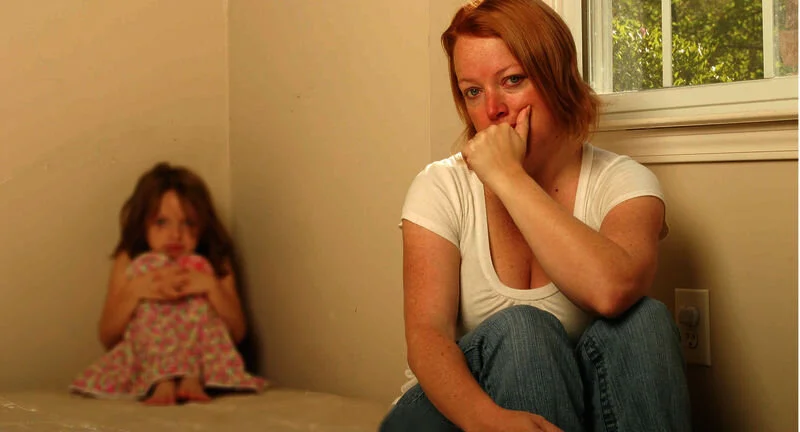When the State Turned Away: Sarah’s Story
By Therese Luxton
With all the rhetoric around domestic violence and women and children it’s hard to believe that even today when women experience hardship and reach out to the state for support, they are still judged and punished by the very agency that is designed to help them.
Sarah’s story, as documented by Therese Luxton, is one of heartbreaking struggle for her family’s survival through domestic abuse and poverty, and the mistreatment she endured by welfare system staff.
Sarah* had a responsible job that paid well. She was young and fun around kids. She looked after old people, babies and people who were struggling, giving new depth and meaning to the word ‘generous’. Her time, her energy, her money and her love were shared freely with those she came in contact with. And then, Sarah fell in love.
She brought all the above attributes, her exemplary work ethic and endless optimism to her marriage. For a while it was idyllic, until she realised that the person she had chosen to share her life and have children with had extreme mental well-being issues. Slowly but surely her partner became more irrational and more and more angry. Eventually they lost most of the property and houses they had put all their energy and savings into.
When Sarah was pregnant for the second time, and had a toddler, the family moved into a notoriously dangerous caravan park out of desperation. Sarah eventually returned to work while her partner looked after their child. During this time he resorted more and more to drugs and domestic violence to cope and make sense of his world.
Somehow they managed to buy a small piece of land in the back blocks of beyond. But Sarah was isolated in a structure that was little more than a shed with holes in the walls and ceilings, in the middle of the bush. There was no cladding, just builders paper and framing. There was no running water, no power, no toilet, no electricity and absolutely no phone service. To have a shower she had to walk to a creek and fill a solar water bag. It was a life more reminiscent of an Appalachian nightmare than a nuclear family in a God’s Own. Still, Sarah was subjected to constant emotional and mental abuse, extreme hardship, and humiliation.
She lived in a fog while trying to survive daily life and provide her children with the very best she could offer under the circumstances. On the day the degradation and hurt went too far, the fog lifted. Sarah realised for her sake and the sake of her children, she had to call it quits.
Initially, when she approached Work and Income, Sarah had a humane case manager, who - while not knowing all Sarah’s circumstances - was extremely helpful and supportive, encouraging her to establish a safer environment. The case manager also helped Sarah access state assistance, which partially alleviated some of the extreme poverty she and her children had found themselves in.
Her income was meagre even though she had an Accommodation Supplement, so Sarah worked out a financial plan. She was paying for the mortgage, LPG gas, petrol for the car and generator, insurance for house contents, as well as car repairs from her benefit. However to survive, she had to charge food, extra petrol and other essentials to her credit card.
Unfortunately her case manager left and was replaced by a person who seemed obviously despising of the people she was supposedly helping.
Sarah worked and acted on a plan to manage her separation. She re-mortgaged her property to clear her credit card debt, install a toilet and make some necessary safety alterations. When she advised Work and Income of this, the new case manager immediately rescinded her Accommodation Supplement.
It was like a scene straight out of I Daniel Blake, but it was Sarah’s reality. This case manager epitomised rigidity and harshness. She was unreasonable, unfeeling and judgmental. Sarah described her as, “cold as a fish, a person who was obviously miserable in her job and could not wait to retire.” Despite the explanations Sarah offered about her circumstances she was repeatedly told, “You just can’t do that.”
Despite all the deprivation and lack of support, Sarah ensured that her children survived. She now has a job and her children have gone on to get tertiary qualifications. They, like their mother, have many altruistic attributes, and all three of them give to their communities, yet they still bear the internal scars of what happened. As Sarah noted acerbically, “They all pay taxes.”
Inexplicably women are encouraged to and supported while leaving these situations, and yet, in the aftermath, when the really hard work begins they are forgotten and expected to rebuild on their own from nothing. A local social work agency had actually visited Sarah to do an assessment. It concluded that her situation was not dire enough to procure any support.
This still happens in our country. While Sarah's situation occurred in years past, the culture in the welfare department remains consistent today. Benefit advocates tell of the atrocious treatment of Work and Income clients they have witnessed first hand. This has been going on since Roger Douglas and Ruth Richardson let the dogs of neoliberalism loose and will continue to happen indefinitely because we live in a land where these feral beasts still rule.
How many other Sarahs are there still out there? Living in ordinary suburbs, facing third world housing conditions, domestic violence and being further victimised by the uncompassionate handmaidens of the Ministry of Social Development.
*To protect the privacy of certain individuals the names and identifying details have been changed.


Severe Deprivation - The Harsh Reality for 140,000 Children